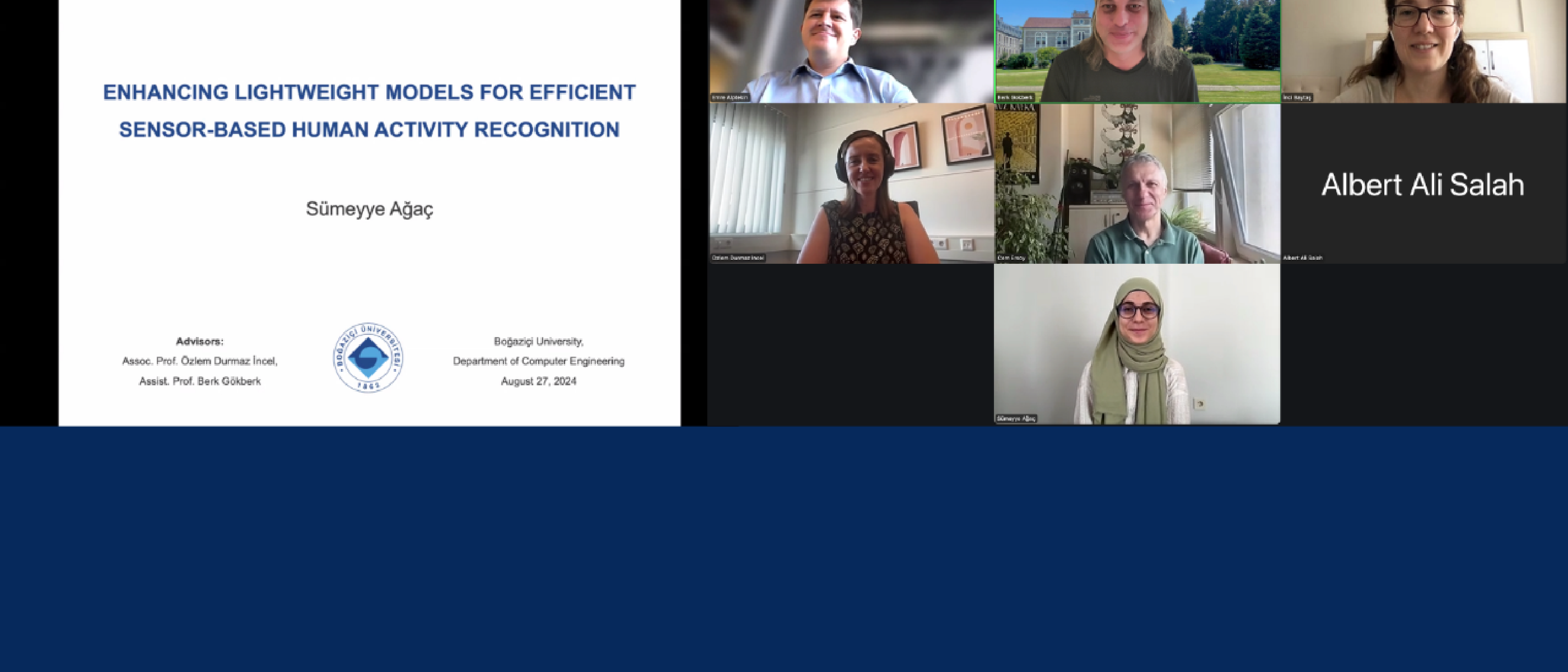Congratulations Dr. Sümeyye Ağaç!
Last modified on January 16, 2026 • 1 min read • 213 wordsSümeyye Ağaç has successfully defended her PhD thesis

Enhancing Lightweight Models for Efficient Sensor-based Human Activity Recognition
Abstract
This thesis presents a comprehensive study on enhancing the performance of lightweight models for efficient sensor-based Human Activity Recognition (HAR) on resource-constrained devices, particularly in memory-constrained environments such as wearables with microcontrollers. By integrating convolutional block attention modules into the lightweight versions of the DeepConvLSTM model, originally proposed for sensor-based HAR, and the highly efficient SqueezeNet architecture, the study aims to boost recognition accuracy without increasing computational demands. The thesis examines the impact of channel and spatial attention mechanisms across various model sizes. Results demonstrate that attention-enhanced lightweight models can achieve performance levels comparable to larger, more resource-intensive models while maintaining minimal resource usage. Subsequently, combinations of knowledge distillation and attention mechanisms were applied to further improve model efficiency. It was found that attention-based distillation could significantly enhance the accuracy of lightweight models even in the absence of attention modules in the teacher model. The effectiveness of the developed models was then compared with model compression techniques such as quantization and pruning. Furthermore, this thesis provides the most comprehensive study to date on sensor-based HAR in resource-constrained environments, offering insights and strategies for the practical application of efficient and high-performance sensor-based HAR systems, thereby addressing a significant gap in the field.